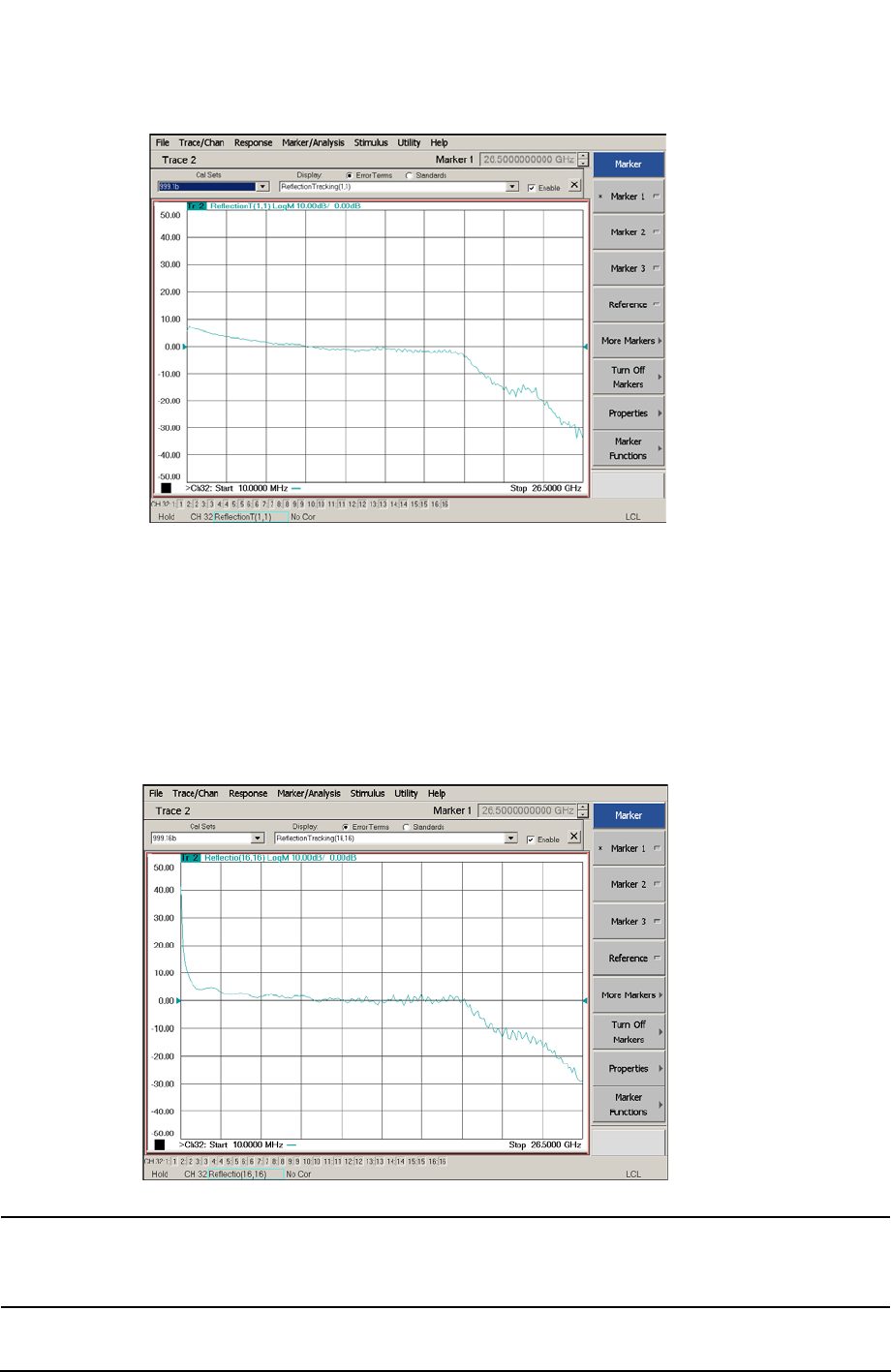User`s guide
Table Of Contents
- U3042AE12
- Title Page
- TOC
- Introduction
- Description
- Available Options
- Verifying the Shipment
- General Specifications
- Typical Reflection Tracking
- Front and Rear Panel Features
- System Setup with N5230A/C
- Controlling the Test Set with N5230A
- System Setup with N5242A
- Controlling the Test Set with N5242A or N5230C
- DUT Control Lines
- Test Set I/O Interface Commands
- Operational Check
- Troubleshooting Operational Check Failures
- Service Information
- Theory of Operation
- RF Switch Components
- S100 - Source to Ports (1, 5, 9 and 13)
- S200 - Source to Ports (2, 6, 10 and 14)
- S300 - Source to Ports (3, 7, 11 and 15)
- S400 - Source to Ports (4, 8, 12 and 16)
- S101 - Receiver to Ports (1, 5, 9 and 13)
- S201 - Receiver to Ports (2, 6, 10 and 14)
- S301 - Receiver to Ports (3, 7, 11 and 15)
- S401 - Receiver to Ports (4, 8, 12 and 16)
- RF Coupler Components
- System Block Diagram
- Safety and Regulatory Information
- Electrostatic Discharge Protection
- Contacting Agilent

78 User’s Guide
U3042AE12 Operational Check
Figure 63 Option 001 or 002 Reflection Tracking Trace (Port 1-4) with N5242A
10.Compare the Reflection Tracking (1,1) trace to the appropriate limits in Table 24 on
page 66. This can be done using Limit Lines (press Marker/Analysis > Analysis > Limit
Test). The trace should be above the limit. PASS will be displayed on the screen if the
limit lines are used. If you are using an N5230C, refer to Figure 55 on page 72, Figure
56 and Figure 57 on page 73.
11.Repeat step 9 and step 10 for Cal Sets “999.1” thru “999.16” (16-Port).
Figure 64 Option 001 or 002 Reflection Tracking Trace (Port 5-16) with N5242A
NOTE Response from 10 MHz to 500 MHz is normal due to the PNA-X Couplers in
comparison to the U3042AE12 bridges. The bridges have more gain in the
coupled RF path.










